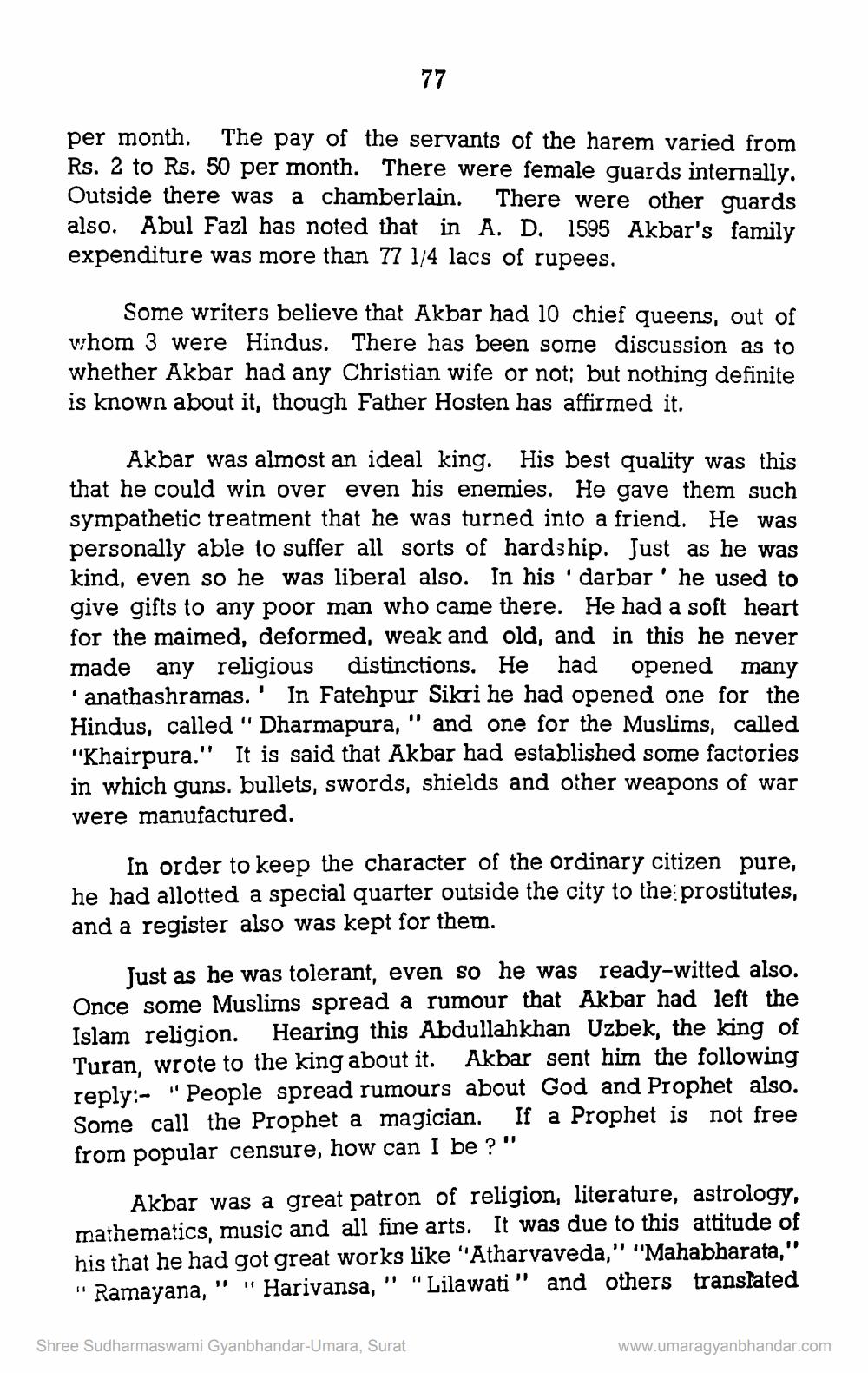________________
per month.
The pay of the servants of the harem varied from Rs. 2 to Rs. 50 per month. There were female guards internally. Outside there was a chamberlain. There were other guards also. Abul Fazl has noted that in A. D. 1595 Akbar's family expenditure was more than 77 1/4 lacs of rupees.
Some writers believe that Akbar had 10 chief queens, out of whom 3 were Hindus. There has been some discussion as to whether Akbar had any Christian wife or not; but nothing definite is known about it, though Father Hosten has affirmed it.
77
•
Akbar was almost an ideal king. His best quality was this that he could win over even his enemies. He gave them such sympathetic treatment that he was turned into a friend. He was personally able to suffer all sorts of hardship. Just as he was kind, even so he was liberal also. In his darbar he used to give gifts to any poor man who came there. He had a soft heart for the maimed, deformed, weak and old, and in this he never made any religious distinctions. He had opened many anathashramas. ' In Fatehpur Sikri he had opened one for the Hindus, called "Dharmapura, " and one for the Muslims, called "Khairpura." It is said that Akbar had established some factories in which guns. bullets, swords, shields and other weapons of war were manufactured.
1
In order to keep the character of the ordinary citizen pure, he had allotted a special quarter outside the city to the prostitutes, and a register also was kept for them.
Just as he was tolerant, even so he was ready-witted also. Once some Muslims spread a rumour that Akbar had left the Islam religion. Hearing this Abdullahkhan Uzbek, the king of Akbar sent him the following Turan, wrote to the king about it. reply:- "People spread rumours about God and Prophet also. Some call the Prophet a magician. If a Prophet is not free from popular censure, how can I be?"
Akbar was a great patron of religion, literature, astrology, mathematics, music and all fine arts. It was due to this attitude of his that he had got great works like "Atharvaveda," "Mahabharata," "'"Lilawati Harivansa, and others translated Ramayana,
" "
"
Shree Sudharmaswami Gyanbhandar-Umara, Surat
www.umaragyanbhandar.com




